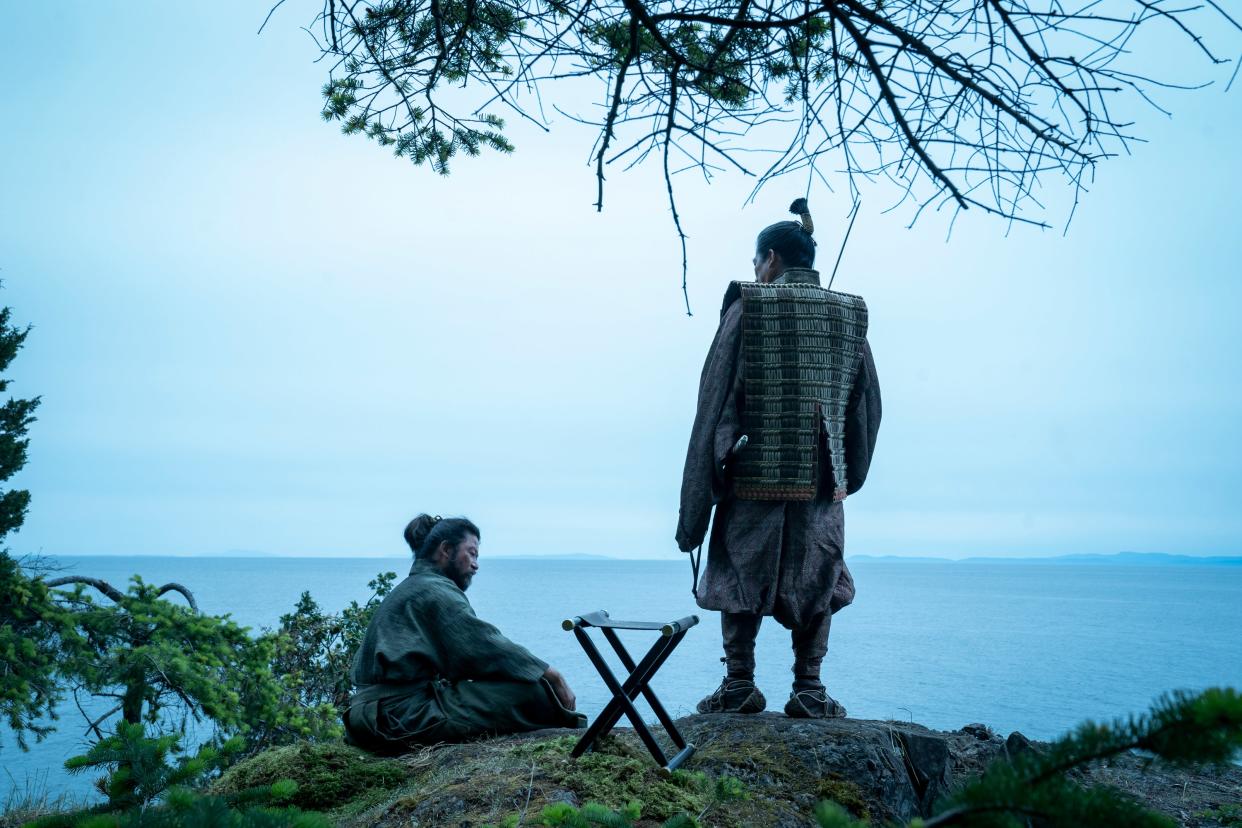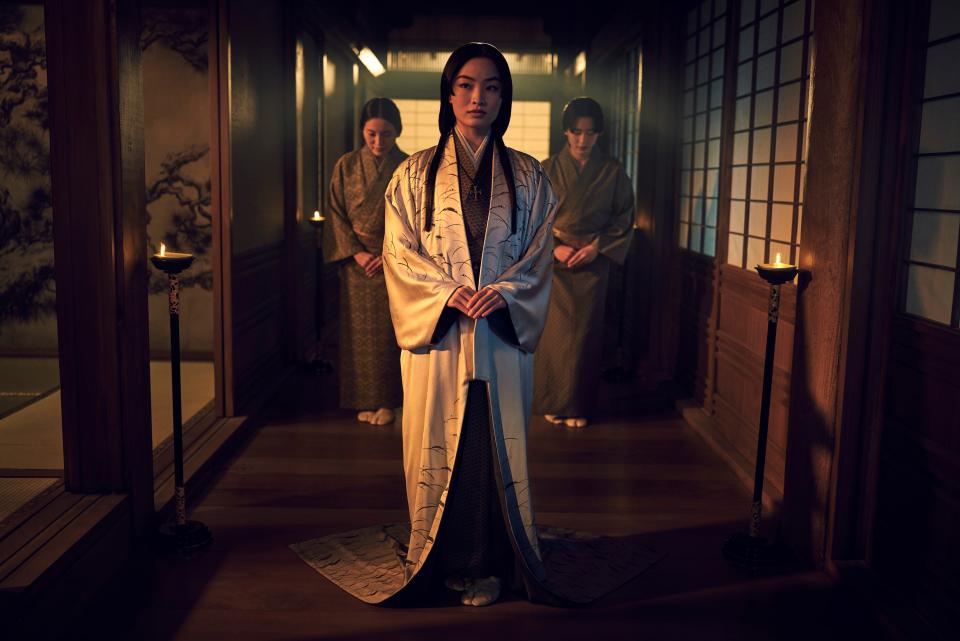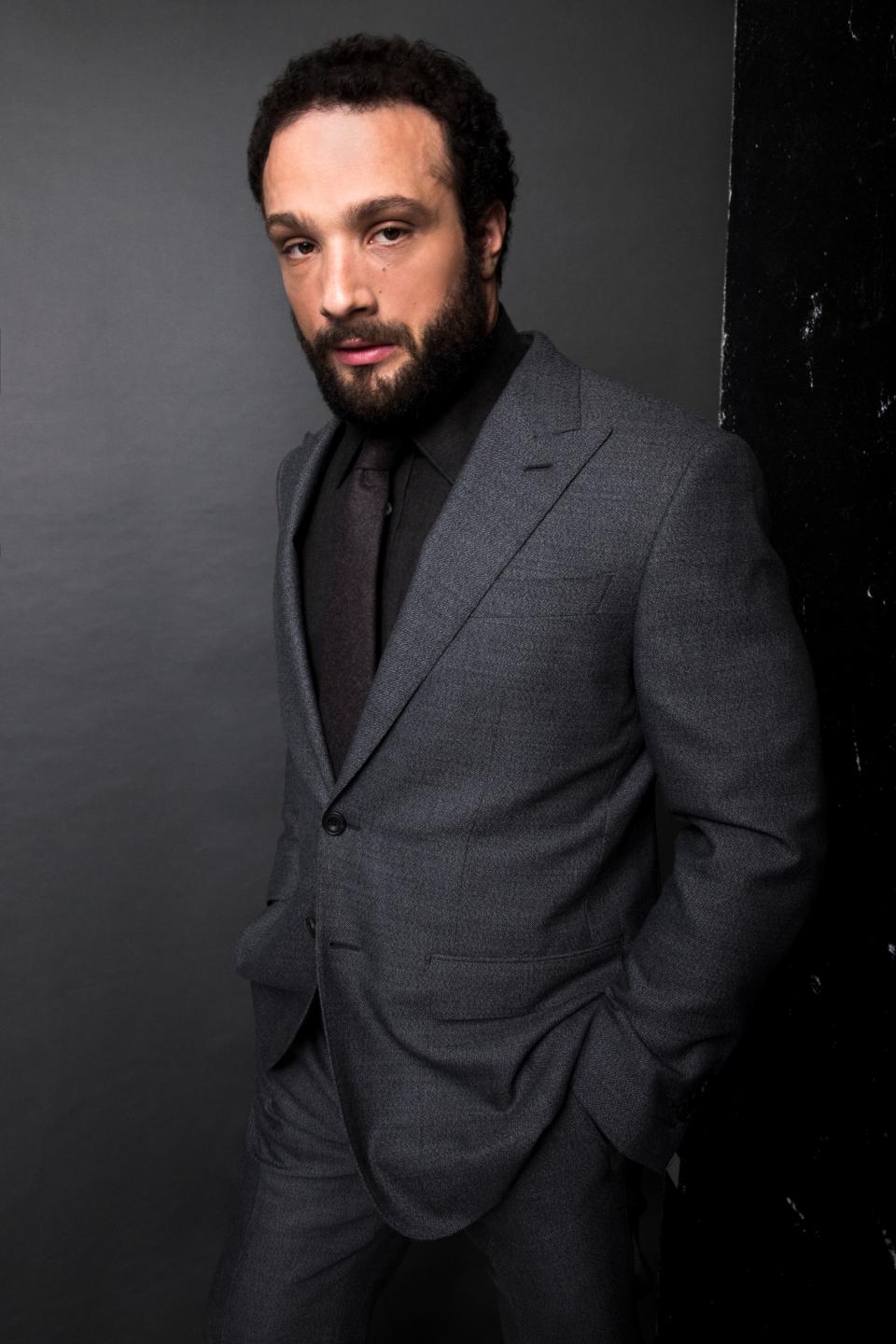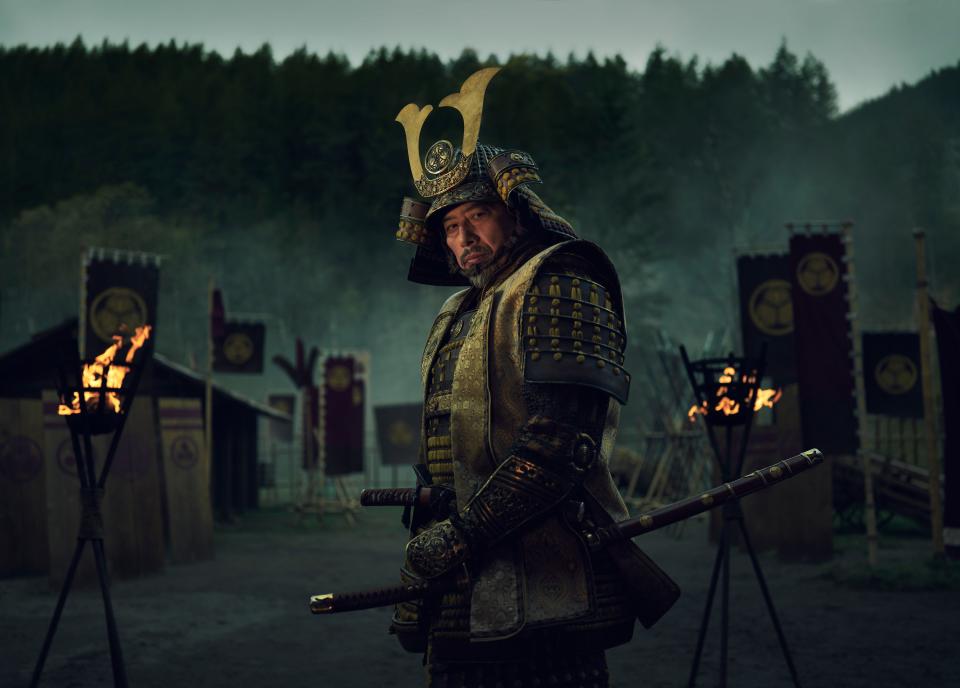Shogun 's Lord Yabushige, Tadanobu Asano, Talks About the Emotional Series Finale

- Oops!Something went wrong.Please try again later.
- Oops!Something went wrong.Please try again later.
- Oops!Something went wrong.Please try again later.
Courtesy of FX
This story contains major spoilers for the series finale of Shogun.
Lord Kashigi Yabushige (Tadanobu Asano) has always had a unique relationship with death. At the start of FX’s Shogun, the Japanese warlord orders one of the Englishmen who sailed with John Blackthorne (Cosmo Jarvis) to be boiled alive so he can glean insight from the man’s screaming and suffering. Later, during a rescue mission to save a Spanish pilot, he nearly commits suicide for the shame of almost drowning. Throughout the rest of the series, as he oscillates allegiances and manipulates his subordinates, Yabushige imagines, ranks (in his mind, cracking one’s head on a rock is “lower than boiling, but higher than being eaten by dogs”), and maneuvers around the various ways his life could end.
“Death is the biggest moment that we have as human beings,” Asano tells GQ during a recent Zoom call. “When a person is about to die, Yabushige is always thinking: What kind of things is he going to say? What is he really thinking? How is he going to show his true face?”
In “A Dream of a Dream,” the solemn series finale, Yabushige finally learns for himself. After the slippery samurai’s double-cross leads to Mariko’s (Anna Sawai) tragic sacrifice, Lord Toranaga (Hiroyuki Sanada) punishes his longtime friend’s deceit by sentencing him to commit seppuku, a dignified form of taking one’s own life. Near the end of the episode, the pair meets at the edge of a remote cliff where Yabushige reads his nephew a final poem, leaves another vassal his living will, and then comes to terms with the inevitable. He sits down, unsheathes his sword, and stabs his belly before Toranaga slices off his head and watches his body tumble off the rocks.
There's only one episode left of the hit FX miniseries—but if you loved this show like John Blackthorne hates the Portugese, there's a wealth of material out there to delve into when it's over.
But the scene is more than just a sacrifice. In the prolonged moments before Yabushige’s death, Toranaga finally divulges his master plan to gain control of Japan. In a series of flashbacks and flash-forwards, the regent explains that Mariko’s death revealed Ishido’s (Takehiro Hira) tyrannical leadership and subsequently convinced Lady Ochiba (Fumi Nikaido) to swap her young heir’s allegiance to him instead. As a result, Ishido’s allied armies will join Toranaga’s side, giving him the upper hand and the eventual authority to rule from Edo as shogun. It’s a quiet climactic encounter, fitting for a series that has relied more on subtle politicking and character storytelling than its action spectacle. Their long-awaited confrontation is also a bit lighthearted, a last chat between two friends whose lives diverged thanks to Blackthorne, an instigating chess piece that Toranaga admits he only kept around for his own amusement.
“Yabushige kind of enjoyed this moment,” Asano says. “He is able to ask the real questions that were on his mind and Toranaga really has the kind of freedom to divulge his true intentions and plans to him. It was very fascinating to be able to play a man like that.”
Asano knew this would be a challenging scene to act—it had to put a bow on his relationship with Toranaga and explain how the inevitable war would play out. The actor spent weeks reading the script “over and over” and rewriting bits of dialogue with the show’s co-creator and showrunner Justin Marks, trying to distill the essence of his idiosyncratic antihero, a wild card whose constant scheming and exasperated expressions give Shogun its mischievous heart.
“It was a huge task for me,” Asano says. “If there are 100 samurai, 99 would be very adamant and complete in their loyalty to their lord. But Yabushige is interested in controlling the lord to which he pledges his loyalty. It's a very different mindset.”
“At the end of episode eight, I genuinely think that he's just completely lost.”
At the start of the scene, Yabushige hands a poem to his nephew Omi (Hiroto Kanai) with instructions to forgo cremation so his body can end up in a dog’s belly. It’s a comical echo from earlier, when he pleads with Toranaga to be killed viciously, by cannon fire or by a large school of fish, instead of what Asano calls “a boring death.” Aware that his demise was always around the corner, Yabushige strives to go out with a bang and forge his own path even in suicide. “I think he's kind of free-spirited in contrast to the other samurai who are like, ‘Oh, it's such an honor to be seconded by you,’” Asano says. “And he thinks, ‘Ugh, these people—they're all brainwashed.’”
When it came to Yabushige’s final exchanges with Toranaga, Sanada built all the Japanese dialogue from Marks’ written English, leaning into his shared history with Asano (the pair previously worked together on several projects, including Hollywood productions Mortal Kombat and 47 Ronin) to carry the weight of the moment. “It’s easy to communicate and believe in each other in real life, so we could use that kind of chemistry,” Sanada says on another call. “It was just like Toranaga. I was on set and telling the story from the bottom of my heart.”
“We tried to make use of every idea that we came up with,” Asano says. “Every moment that we had on set, we used to the max.”
That included the sly smile that Yabushige gives Toranaga right after piercing his stomach (and right before losing his head). It only lasts a couple seconds, but the extra emotional beat spoke to the character’s teasing, disobedient personality and the pair’s long, bitter friendship. “Yabushige is not a typical samurai, so we tried to find his own unique way to match his character and make it different from Hiromatsu’s seppuku,” Sanada says, referring to Toranaga’s second-in-command. “I recommended he sit down on the ground, just like a boy watching the ocean.” Asano doesn’t remember who came up with the idea for Yabushige to grin, but says that “everybody was so invested in this character, everybody just came forth with ideas.”
As the series progressed, Yabushige became a fan favorite, thanks to the devilish personality and self-interest that allowed him to play both sides of Japan’s warring leadership. At times brutal and foolishly shortsighted, his charismatic and antagonistic nature made him a natural draw for audiences new to his work. “I'm always thinking about the essence of a villainous character,” Asano says. “All they want to be is to be loved, so they act out of that want, which is why people perceive them as having a few screws loose or being very eccentric.”
The actor, martial artist and now producer talks about playing a calculating, complex warlord in the epic FX series.
Still, despite Yabushige’s betrayal, Sanada believes that without him facilitating Mariko’s unfortunate death, Ochiba might not have been convinced to take his side, a long-game perspective that casts a silver lining on the war lord’s villainous decisions. “Maybe Yabushige helped Toranaga's strategy,” Sanada says, before admitting: “But he had to die.”
After a few decades acting in Japanese and American productions, Asano was astonished by the scale of this jidaigeki. The manpower, the costumes, and the sets “exceeded my imagination,” he says, “and we really could do everything that we set out to do.” The 11-month shoot in the remote areas of British Columbia also gave the cast plenty of time to absorb and embody the inner lives of their characters. Asano could attest. Over the course of filming, he says, the constant rain and secluded set fueled some seasonal depression and forced him into a state of “childishness” and confusion while “trying to deal with the character of Yabushige alone.”
The combination helped him inhabit his character’s headspace even more, and maybe fittingly disgruntled some of the production in the process.
“I think I was quite a nuisance to put up with,” he laughs. “If there were any lessons I were to learn from this experience, it would be to always be on your best behavior.”
Originally Appeared on GQ




